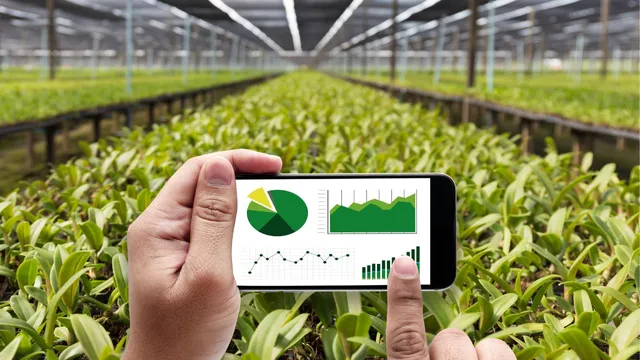- By Ritesh Kumar
- Tue, 25 Jun 2024 05:28 PM (IST)
- Source:JND
Agriculture has a significant impact on the environment. More land, fungicides, pesticides, and fertilisers are being used to fulfil the demands of the growing population. Consequently, deforestation, irrigation issues, biodiversity extinction, and pollution are on the rise, among other things. These impacts of harmful agricultural practices have led to the development of a new and ecologically conscious form of agriculture known as sustainable agriculture. Sustainable agriculture aims to decrease the impact of such agricultural practices and introduce a greener and more eco-friendly way of farming.
Er. Koneru Lakshman Havish, Vice President of KL Deemed to be University, shares insights on how modern agricultural education is embracing sustainable practices.
To make people aware of sustainable farming methods, education is playing an important role. It aids in addressing the challenges of current agricultural practices and equipping individuals with the necessary skills and knowledge. By keeping this in mind, here are some ways in which education is contributing to safeguarding the environment.
Importance Of Cultivating Knowledge Among The Farming Community
Agriculture is the science of growing safe and healthy crops on a large or a small scale. In order to achieve this, the planting of crops on the cultivating land has to be controlled and systematic. Hence, the acquisition of knowledge becomes vital. With this knowledge, the farmers can incorporate sustainable agricultural strategies and navigate the obstacles of constantly changing climate and market demands.
The Role Of Education In Agriculture
According to a study by the World Bank, farmers who have at least four years of primary education witnessed an increase of 8.7 per cent in productivity. With the increasing climate impact worldwide, anecdotal evidence pertains to the fact that farming sectors can remain productive when they receive education and advisory workshops from the government, NGOs, and the private sector.
Promoting Sustainable Agriculture Through Education
Education is vital to teach farmers about the economic, social, and environmental impacts of sustainable farming methods. In addition to conventional knowledge, technological advancements in agricultural research, extension services, and farmers’ organisations are expanding the skills and knowledge of the farming communities. For instance, a group of 40 farming communities and organisations, have helped establish various agroecology schools in Guatemala, and Central America, to educate farmers about the significance of advancing and sustainable farming strategies.
The importance of education in farming cannot be overstated. Through education, farmers can understand the smart ways to grow healthy crops in a sustainable manner. As we go further into the 21st century, the farming sector plays a pivotal role in addressing the ecological conversation, food security, and climate change. It is not merely an option but a necessity for safeguarding future generations.

